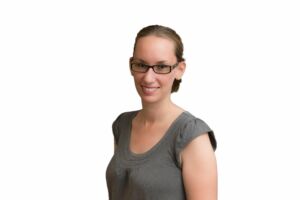Opinion
Birth & Beyond: Birth matters – mind the gap
Emma Janssen-Zhaung
This article is more than 10 years old.

Having a child with a fellow international in Denmark can be challenging
You only need to step onto the train at the airport and see the number of spaces set aside for prams to realise that Copenhagen is particularly geared to kids. From the generous policy on parental leave to the ubiquitous Christiania bikes, Denmark is definitely dedicated to families.
A tricky transition
But there are surprising gaps, and much of the services and facilities for families may not be readily accessible or understandable to people, like me, who came to live in Copenhagen as an expatriate.
Having gone through pregnancy, birth, and my child’s infancy in Copenhagen, and now also through my work as a doula, I have seen time and time again the sense of confusion, helplessness and isolation that many expats feel here during their transition to parenthood.
“My midwife will only let me ask a few questions during my prenatal appointments”; “I had to stay in the waiting room for 30 minutes while I was well into labour”; “They told me to go home just one hour before I ended up giving birth”; and “I had no help or support while struggling with some postpartum difficulties.”
These are some of the examples of statements I have heard time and time again and also experienced myself. It is often difficult for international people to receive the support and help that they need.
One set of rules …
It seems as though two separate systems are working in parallel: one for the Danes and one for the expats. While Danes get a full day or two of prenatal childbirth education, internationals only get a few hours; while Danes get breastfeeding classes and support after birth, internationals are lucky if they can get one midwife appointment for help.
It seems that foreigners here are struggling to fit into the system and get the appropriate assistance that they need in order to have a happy and successful pregnancy and parenting experience.
As such, many are left struggling to find helpful services – a lot of the English ones are only known through word-of-mouth and difficult to find through Google.
More support needed
With so many more international families moving to Copenhagen, we need to find a way to truly work together – with each other and with the Danes. While some dialogue is starting to occur with Danes that are working in the childbirth and childcare areas, much more is needed to provide everyone with a sense of ease and belonging.
Without a feeling of support and belonging, internationals will keep leaving and seeking meaning and connections elsewhere. We need to listen to each family’s feelings and truly work together to create a better experience for all.
Cultivating openness
The Danes’ general reservation to openness can definitely be sensed within this area as well. The transition to parenthood is a challenging, vulnerable and life-changing time when new parents need to feel reassured and supported, and yet there seems to be so much resistance to this idea here.
So is this something that can truly change? With the appeal for independence and privacy here, could it just be that Danes and internationals want different things? How can we then work together while catering to everyone’s needs?

About
Emma Janssen-Zhaung
Emma moved to Copenhagen from Canada with her husband in 2012. She gave birth to their daughter in 2014 and is now working as a birth and postpartum doula, focusing on providing much-needed help for new parents and parents-to-be in the international community. Find out more at emmajanssenzhuang.com










































